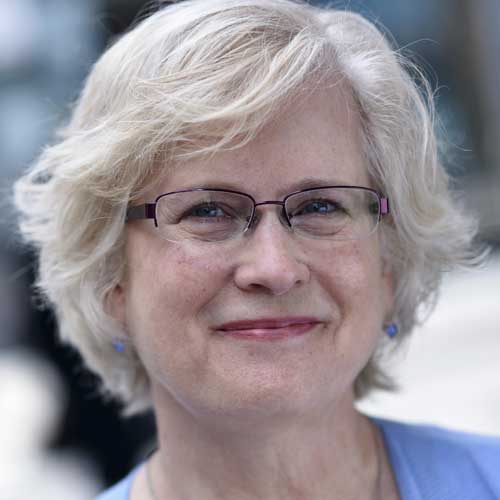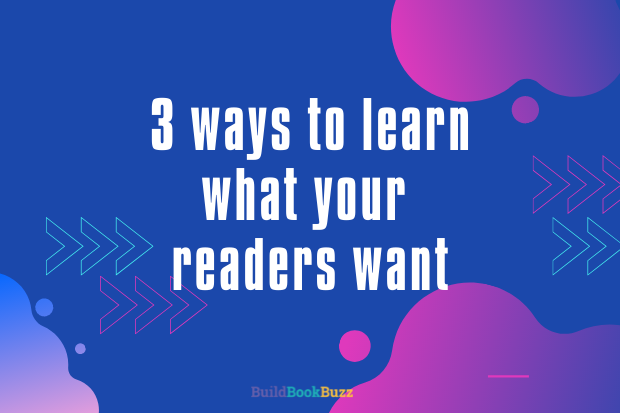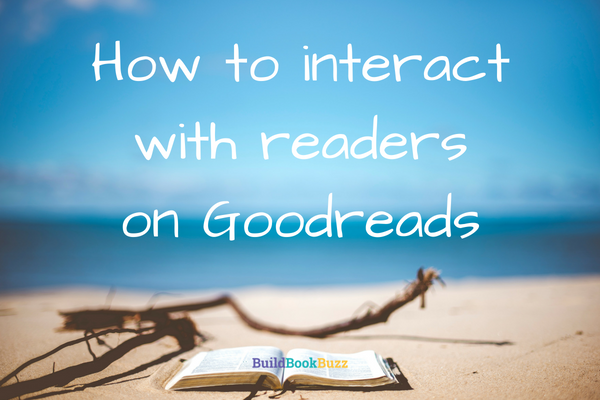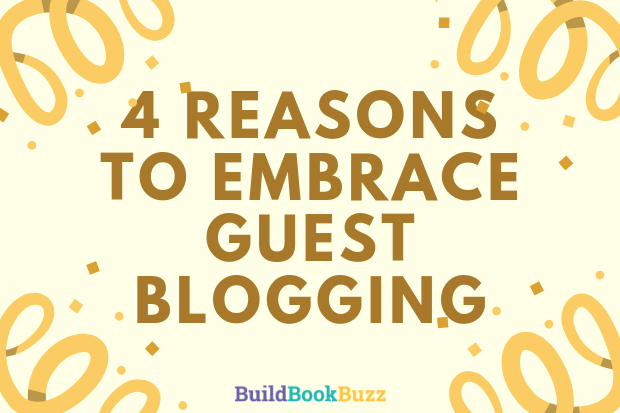Does quality matter in self-publishing?
Our guest blogger today is Kristen Eckstein, a book coach, two-time best-selling author, and award-winning international speaker who has started 45 publishing companies and published 133 books and e-books. She is founder of the “I am Published!” program, the Self-Publish On Demand training program, and the “21 Ways” book series. Learn more at her website.
Does quality matter in self-publishing?
By Kristen Eckstein
I’ve heard it from dozens of authors, “I just can’t seem to understand why my book isn’t selling. It sold well at first, but after the first 100 copies sales just… stopped. What can I do to market my book?”
Let me be frank. Marketing will only take your book so far if you’re lacking a quality product. Think about Amazon reviews for products people rave about (5 stars) vs. similar products in the same category people complain about (1 star). Most of those one-star reviews are complaining about the quality of the product.
If you cut corners in quality, you open the big fat door to failure after your family and friends all have copies of your book. The average self-published book only sells 75 copies. Average. Honestly, at first I didn’t believe that statistic since most authors I’ve worked with sell way more than that. And after seeing many poor quality self-published books, now I know why.
Benefits of quality
A high quality book reaps great benefits:
- More sales—Books that look good and feel good make people look at them longer. You have seven seconds to convince someone to look further at your book after they see your cover. Make the most of that time!
- More credibility—If you hope to get leads and new clients with your book, don’t cut corners. Cutting corners attracts the crowd who like to cut corners themselves. To attract higher-end clients, you have to show them a higher-end product. Think about the types of people who shop at Lexus vs. Kia. Lexus markets themselves as having a high quality product and Kia markets themselves as cheap. Who do you want to be?
- More marketability—You can market a horrible book until the cows come home and sell a few copies. Or you can market a great book until the cows come home and become a New York Times Best Seller. The choice is yours.
If you’re on a tight budget and can only hire a professional, here are three things to make sure you outsource:
- Editing—At bare minimum, hire a copy editor to look at your manuscript. Every book needs another set of eyes.
- Cover design—People do judge a book by its cover. Studies have been done that prove this fact! Hire an experienced professional who specializes in book cover design and you won’t regret it!
- Interior layout—MS Word is not a page layout program. This is one of the primary reasons self-published books get poor reviews or fail to sell, because books formatted in MS Word scream, “Look at me! I’m self-published!” Get yourself a professional book interior layout designer and give your readers a memorable experience.
Your book is your dream. It deserves to be treated with the highest respect and given the chance at a long and successful life, so give it that chance and watch your reputation and reach expand to new horizons and open doors to new possibilities!
Do you agree with Kristen? Why or why not?

Subscribe to the free Build Book Buzz newsletter and get the free special report, “Top 5 Free Book Promotion Resources,” immediately!







Great article! I’m a believer! Great quality counts and Kristen Eckstein of Iampublished.com is the best!
I love believers, Susie. Thanks!
Sandy
The quality of any book begins with the actual product–whether the nonfiction book helps you do whatever or the novel entertains you. I am amazed at the number of articles talking about the marketing and the cover design and the editing without even mentioning the book/product/item that is being edited. I guess people think there is no way to make a better nonfiction book; that there is no formula for making it work, so why even talk about it? I disagree–I spent three years making my first nonfiction book solve the problems it set out to do and it sold 500,000 copies (Stop Walking on Eggshells, New Harbinger, 1998). It’s really too bad that the “secret” is so obvious but it doesn’t even register with most people.
I think, Randi, that’s just it… the “secret” is so self-evident it seems to be assumed that by this point the author has written something worth reading.
Or, maybe that the author is so deluded that saying “make sure your content is quality” would just sail over his or her head unheard!
Congratulations on your success!
Just because you think your book is top quality doesn’t mean it is ….
Sandy
Kristen’s article is great and I think very true. To me, the cover is the secret. It will draw the reader to you. Also, your book needs to be entertaining and easy to read. But that’s just me, I enjoy fun, easy, entertaining reads with great covers.
The cover has to draw me in, but even that isn’t enough if what’s between the covers isn’t well-done. In my experience, even if you’ve got great packaging, if the content isn’t great, too, you’ll get bad buzz, not good buzz.
Sandy
Interesting title, attractive book cover and memorable and quotable materials all have to come together at once. We’ll see if that happens on June 11th when Kiss Your BUT Goodbye is released.
Joe – I hope everything came together for you!
~Kristen 🙂
Agree 100% about hiring professionals to make sure a book looks and reads its best, but the quality between the pages is very hard for anyone to gauge before putting it out there, and I admire everyone who is willing to take that chance.
After I finished “Happiness as a Second Language,” I showed it to a handful of close friends and family members, who all said it was great, but that is hardly a reliable sample set. Now that it’s out, and the sales and reviews have been consistently high, I can breathe a sigh of relief. However, even the night before it went on sale, I had to ask myself, “Am I making a huge mistake?” It is very hard to know.
If anyone has the fortitude to write a book, and the courage to put in out there, and the confidence to market it to friends and family, we should celebrate that. If it doesn’t sell, then hopefully the author will use that as a learning tool and make the next one better. Fear of failure or embarrassment shouldn’t be anyone’s reason for not trying at all.
This shows how much worse life is when motivated by fear and not happiness:
http://speakhappiness.wordpress.com/2013/05/09/why-choose-fear-over-happiness/
Valerie, I hope you — and all other authors — are marketing beyond friends and family! Don’t limit yourself. I’m glad the reviews are great — that’s very exciting. Congratulations!
Sandy
I think my post was misunderstood. My own marketing has gone way beyond friends and family (and with pretty amazing results — the book as been in the top 100 in the Happiness category since its release).
I feel most self-published authors, however, are going to primarily friends and family, and even those who never go beyond that have still really achieved something great.
For me, marketing started with friends and family, then many of them began sharing it, posting it, tweeting about it, that it began building an audience for me. To agree with Sandra’s original post, that all speaks to the value they found in the book.
I just wouldn’t want someone who has done something as impressive and courageous as write a book (and tell those closest to them about it) to feel that is an unworthy venture merely because it didn’t sell, or to let that lack of sales discourage them from continuing to try and work harder next time.
Valerie, I did misunderstand so thanks for the clarification. I agree with you that we should applaud and support those who have the courage to get their words out there. But I still want them to think past friends and family. Make sure the people you can help/entertain/educate the most with your book know about it!
Sandy
Hi Valerie,
First of all, I love your name. It’s the name of the main character in a mystery series I hope to write someday. 🙂
Second, you’re absolutely right that marketing should start with friends and family. Start with what you know, then branch out from there. Where marketing tends to stop is when friends and family recommend a book to someone, and that person has no idea who the author is except that they’re a friend or family member (which is often seen as an instant bias). When they go check out the book, if all they see is a poor quality product many potential buyers will click off the screen onto something else.
That is the message I was trying to convey in this article – that yes, what’s written does matter, and I’d hope authors by now already realize that (though sadly I guess many don’t). And that how that writing is presented often matters even more, as it’s the first impression non friends and family will get for a new author.
You wouldn’t go on a first date dressed in PJs with bed hair and without brushing your teeth, yet many authors treat their book’s packaging this way.
Congrats on your success and may your book see many more sales!
~Kristen
I like the title of your book.
The people you want to read your work aren’t friends and family but members of your potential demo(s).
Thank you, Randi!
Thanks, Kristen! I’m still amazed that people have to be told to have professional covers, editing, etc., but I guess that’s the case.